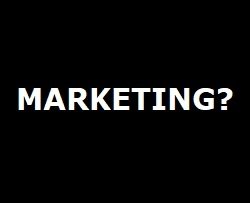Can Marketing Make a Difference?
Dr. David Hagenbuch, Ethicist and Professor of Marketing, Messiah College, Author of Honorable Influence,Founder of MindfulMarketing.org
When considering our world’s challenges, people tend to see marketing as part of the problem, not the solution. Such perceptions surface in Gallup’s annual poll about the honesty and ethics of various occupations: Respondents consistently rank marketing roles like advertising practitioner, insurance agent, and car salesperson near the bottom of the list.
So, who would ever claim that marketing can combat prejudice and even encourage racial reconciliation?
One of those marketing optimists is me. More than a decade ago, I wrote a paper aboutmarketing and reconciliation in which I made a rather simple observation: People who buy and sell from each other tend to stay on good terms and build healthy bonds. In contrast, fractured relationships often lack any meaningful exchange: verbal, material, or other.Marketing often brings together people from different backgrounds, whose paths wouldn’t otherwise cross, for shared economic gain as well as other mutual benefit. For instance, a white family enjoys food from a restaurant owned by an Indian couple; a black salesperson appreciates her Asian client, and vice versa; a Hispanic CEO values contributions from hundreds of employees representing an array of race and ethnicity.
Business, in general, and marketing, specifically, are catalysts for countless positive interracial interactions and relationships. As people’s lives interlace with individuals who are different than them, while partnering for a common purpose, they often come to respect and appreciate their differences.There’s also the notion that racial equality is closely tied to economic opportunity. When people can work in well-paying jobs or even start their own companies, aspirations and optimism replace desperation and despair. Marketing helps provide such hope-inspiring possibilities.While I truly believe all I’ve just shared, I need to remind myself and disclaim that these words come from someone who, because of his own background, has not experienced significant racial prejudice and who will never truly understand the struggles that the black community and other people of color have endured for centuries.
One thing I can do is share this platform of Mindful Marketing with some who have experienced racial injustice firsthand, who wake up each morning to its effects, and who, also importantly, see business and marketing asa way forward—not necessarily as “the” answer, but as part of it.I recently reached out to a few black friends, asking if they would be willing to share their perspectives on the roles that business and marketing may play in racial reconciliation. I received four enthusiastic and thoughtful responses from: a current student, a former student, a college classmate, and a research partner. My intent is to share each person’s reflection in its entirety over the next several blog posts.It's a small gesture that I feel led to make for several reasons:
I care about these friends and their families.
I want to understand the current situation from the perspectives of those most affected.
Our opinions impact what others believe and do.
In an age of social media, the third bullet point may seem glaringly obvious; however, it takes me back fourteen years to my doctoral dissertation in which I applied Ajzen’s (1991)Theory of Planned Behavior(TPB) to accounting clients’ referral intentions. Key to the TPB, which hundreds of studies have validated, is thatour intent to do anything is impacted by societal (subjective) norms, or what we perceive others believe is good or bad.
So, even if I’m not promoting racism, my silence might lead others to believe that I think it’s okay, which is not okay. I want to use my voice to help establish the social norm that racism is wrong and that respecting others, regardless of their skin color, is right. My friends who have kindly accepted the offer to share this platform want to do the same.
In my Marketing Principles classes, students learn that people can market three types of “products”: physical goods, intangible services, and ideas. Now is the time for all of us to leverage our own social influence tomarket reconciliation—one of the most important applications of “ Mindful Marketing .”
About the Author:
Dr. David Hagenbuch is a Professor of Marketing at Messiah College, the author of Honorable Influence, and the founder MindfulMarketing.org, which aims to encourage ethical marketing.



